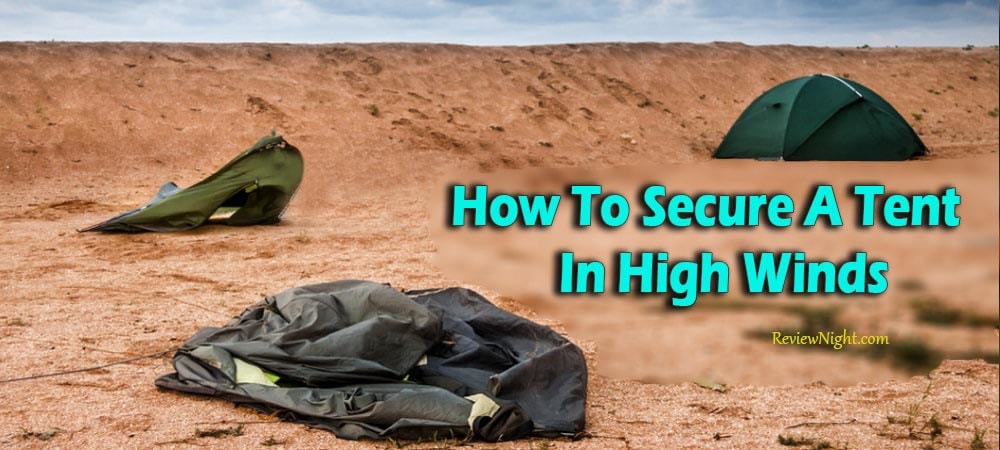How To Secure a Tent in High Winds
If you are an outdoor enthusiast , then a secure tent is a great way to have fun. This goes a long way to improve your outdoor experience . From a day at the beach to camping and even festivals, tents provide good shelter from harsh weather conditions . However, research has shown that high winds are the most destructive natural force against a tent. When not well secured, high winds can shatter , collapse or blow away your tent. This article will show you how to secure a tent in high winds.
Ways to Storm & Weatherproof your Tent
There are several ways you can secure your tent against the weather and storms . When you take these precautions, you can be sure of having a tent that will withstand most storms .
Set Your Tent Up Properly
This seems like a very simple step but it is easily the most ignored. Most people just go ahead to set up a tent their own way without following instructions. Every tent has a unique design and comes with a set of instructions on how to set up. Make sure you follow all the recommended options. Here are a few things to make sure of
Set Up in a Sheltered Spot
Instead of open space, try to set up your tent under of close to a shelter. When you set up in a sheltered spot, it can act as a windbreaker and protect your tent from dangerous winds.
Use Extra Guy Ropes and Pegs
Guy ropes and pegs are used to secure your tent to the ground. They help ease the tension on your tent. Make sure you use all the ropes provided. Also, use more ropes and peg as the more you use, the better security your tent has
Awnings / Verandahs
Most tents come with an option to cover/zip up the front awning or veranda. If you have this option, use it. This will prevent the wind from getting under your tent and lifting it away.
Put a Tarp Over Your Entire Tent!
Tarps are very strong and waterproof. Get an industrially sized tarp and secure it over your tent. This will make your tent stronger and also waterproof .
Dig a Trench Around Your Tent
A trench is a good way to protect your tent against rainfall and flooding. Dig a trench around your tent so that water is directed into the trench instead of your tent.
Add Anti-Sink Pole Plates:
Unless you are setting up your tent on cement, make sure you use pole plates. It can be a recycled piece of wood maybe from an old table. The purpose is to keep your poles from sinking into the ground. You can also use them if you don’t want the poles to make marks on the ground.
Remove the Sidewalls
When high winds are expected, we advise that you remove the side walls. This will reduce the wind pressure on the tent. The will pass through the tent instead of knocking out the poles.
Tricks for keeping the tent stable in wind
Tents can get a bit shaky during high winds. Here a few tips to help you keep your tent stable.
Here are a few more tricks to consider.
Campsite Selection
Selecting a campsite is very important. It will go a long way in deciding your overall experience while camping. Here are a few tips to keep in mind:
Pick a place without serious high winds.
Wind and rain strategies
Wind and rain combine for the biggest problems for tents. Here are a few tips to keep in mind:
Stakeout tactics:
Rainfly wraps
For your rainfly wraps, a Velcro strap is usually attached to them underneath. Use these straps and tie the rainfly to the poles of the tent. This will help strengthen your tent.
BE AWARE OF THE SIGNS OF WEATHER forecast
Like we said in the beginning, the wind is a big tent enemy. Before you set out for camping, make sure you know the wind forecast for the day. While the tips here can help you keep your tent in high winds, every tent has its wind limit. So make sure you have an idea of what the wind will be like before setting out.
Conclusion
A tent is an essential tool for most outdoor activities. It is important to know, not just how to set it up, but also how to navigate certain weather. This article has provided tips on how to secure your tent in high winds s that you can make the most out of your outdoor time .

